
[Originally published on Feb 2, 2009]
For our entire lives, most of us have depended on highly centralized systems. Our food comes from a thousand or more miles away. Our savings is shipped into distant financial centers and invested by strangers in enterprises run by strangers. We watch highly scripted news that serves the same spin no matter how many channels we try. We bank at impersonal global banks with criminal records that would make a felon blush and have no idea where our money goes, just that the government guarantees that we will get it back.
Within this centralized system, diversification means having your financial assets deposited into a “one-stop-shop” brokerage account invested in securities representing different global industries, the idea being when one industry is doing poorly, another “countercyclical” industry would be doing well.
But suddenly, we find that we may not be able to trust these centralized systems. Suddenly, traditional portfolio theory no longer addresses our anxiety. This is because we need to shift from diversification within a centralized system to real diversification in a decentralized, possibly “out of control” world.
If you study the investment patterns of families and wealth that has survived through the generations, including through periods of lawlessness and warfare, you come to understand that for those who want to thrive in all economic and political scenarios, diversification has had a far deeper meaning than what is commonly understood in the financial markets today. For the astute strategist, it means not putting all your eggs in one basket in every important aspect of your life. Given what is happening in our world and economy, it’s time to revisit the deeper meaning of diversification.
Diversification means that our assets are invested such that an economic, political, or natural event — particularly a catastrophic event — cannot wipe us out. So, for example, we don’t invest all of our savings in a single financial institution or fund. Investors who lost their life savings in the Madoff scandal were not practicing even the most basic form of financial diversification.
Diversification also means having multiple types of assets and custodians in multiple places. Custodians (i.e., those who hold our assets for us) might be brokerage firms, banks, depositories or our own safe.
Diversification by place means locating our assets in states or countries subject to different legal and political risks. It means denominating our assets in currencies of multiple countries. It means selecting assets subject to different risks of loss due to climate change, weather conditions, social conditions and other uniquely local vicissitudes. Local investment is a great idea, but the people who lived through Katrina can tell you why having all of your eggs in one local basket may not be the best idea.
Diversification means that we don’t have all of our savings in just one type of asset. So we don’t invest in securities only — we also invest in tangibles. If possible, we buy a house without debt, or with debt that can be serviced by one family member’s income, or invest in our home to lower energy and food costs permanently. We also maintain a sufficient inventory of household goods. And it’s a good idea to invest in disaster preparedness if we live in an area that experiences earthquakes, floods, hurricanes, or tornadoes or is prone to power outages.
Having all your money in one currency or one country is pretty risky – a risk many in the US tend to take. Ask your Jewish friends whose parents got out of Germany in time because they had gold coins or family and assets abroad. Gold coins may hold their value if the dollar collapses, but they can also disappear in a burglary or if you forget where you put them. Digital gold may be a great thing, but if the Internet is not reliable where you are, cold cash may be a good thing. Or if your cash is worthless, a stockpile of food, vitamins and liquor can be priceless. However, food, vitamins and liquor are only good when you are bartering with someone who wants them or is close by. Which takes us back to gold coins or digital gold or some other currencies. So you see, there is no magic bullet – just diversification.
Diversification of life risks is an integral part of all matters related to financial capital. Living things are the source of all wealth. That includes you and me.
Diversification means that we invest in our physical and mental well-being. We invest our time in understanding the toxic chemicals, drugs and other influences that increasingly contribute to poor health and cause us to need so much more funding for more drugs and medical treatments to cure what ails us. One of the greatest – and growing — threats to our financial health is physical illness. The notion that corporate stock investments will create security while one saves money eating unhealthy food is contradictory to the principles of building real wealth.
Diversification means that we invest not just in our own human capital but also in the human capital of other members of our family and those around us. In this way, we are not betting on financial assets alone to see us through. We are investing in each other because it is family, friends and communities that help see us through. An active network of mutually-supportive friends and colleagues is important. For those with sufficient capital and skills, financing the farmers and companies we depend on for our daily bread may not provide much of a return — it may, however, ensure that we have healthy, safe food.
Diversification also applies to the work we do. For most people, our labor is our most important source of financial assets. Skill diversity can mean, for example, that you have a number of skills. If one skill goes out of favor, another will give you the ability to be economically useful. If you have a business that fails, you have the ability to start a new business because you have the experience and diversity of skills to make a business run.
The ability to generate income through your own business or practice is invaluable, particularly when the economic environment makes “W-2” employment more difficult to find. If you are an employee and your company closes, if you have taken care to broaden your skill base, your skills can be valuable commodities for other, different types of employers or employers in other industries or places less affected by a downturn. Better yet, you know how to do many things for yourself, thus offsetting lost income with lower expenses. Look at those who are successful in the current environment: what most of them share is a commitment to life-long learning that translates into a multitude of personal and professional skills.
Diversification is not always easy to achieve. The more resources we have, the easier it is to diversify. The fewer resources we have, the more our diversification focuses on building our human capital and community. Interestingly enough, many of the best opportunities before us are those that can happen when people who have a lot of money and people who don’t have money but have a lot of skills become allies in building greater diversification together. Isolation shrinks our options. Opportunities expand as we organize and collaborate effectively. Hence, it is critical to not assume financial capital can provide sufficient diversification alone and remain isolated from our neighbors and family.
One of my goals for the Solari Report is to explore options we have to strengthen and diversify our human and financial capital and to introduce you to leaders who are taking action to help us do so. This week, I will be reviewing recent financial events and discussing indications that more and more people are concerned about a financial coup d’etat.
Related Reading:



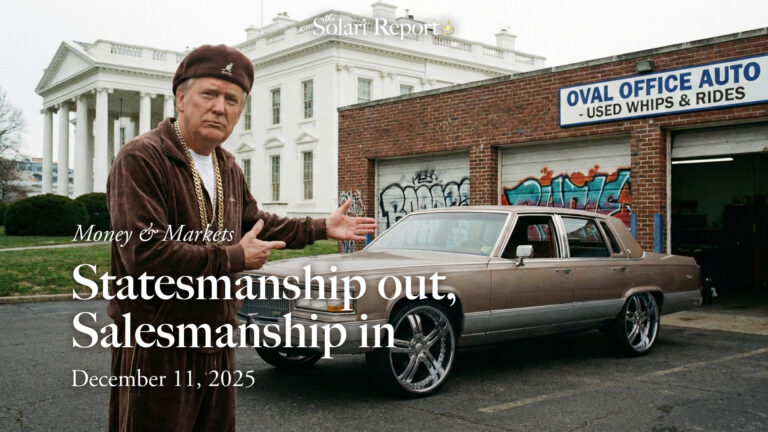
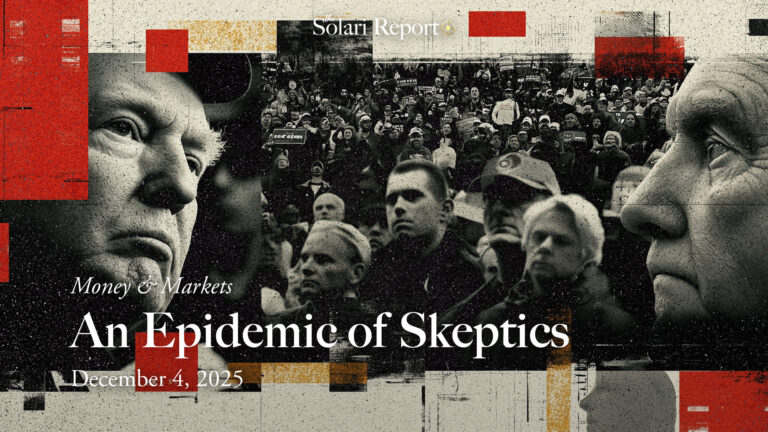

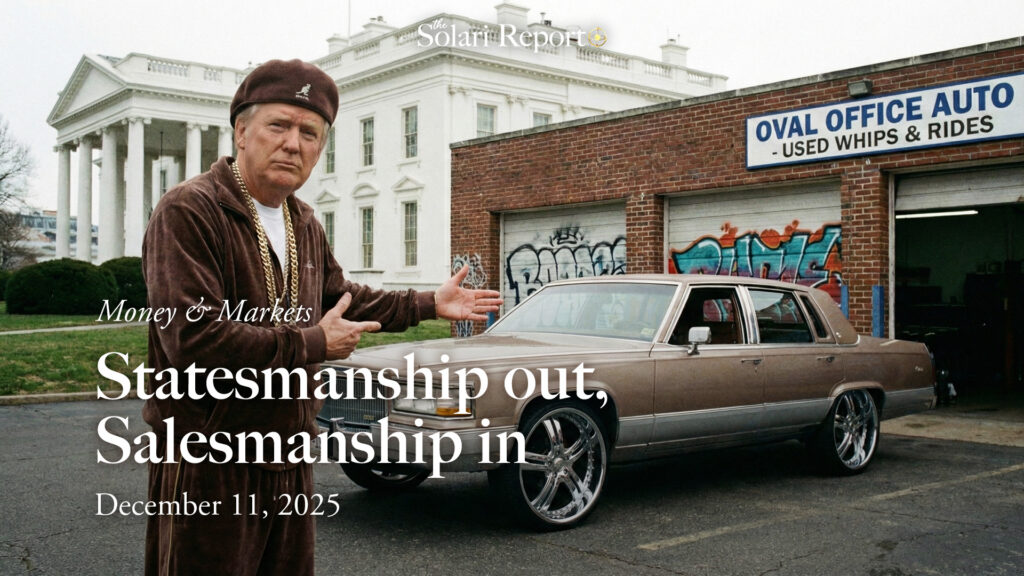
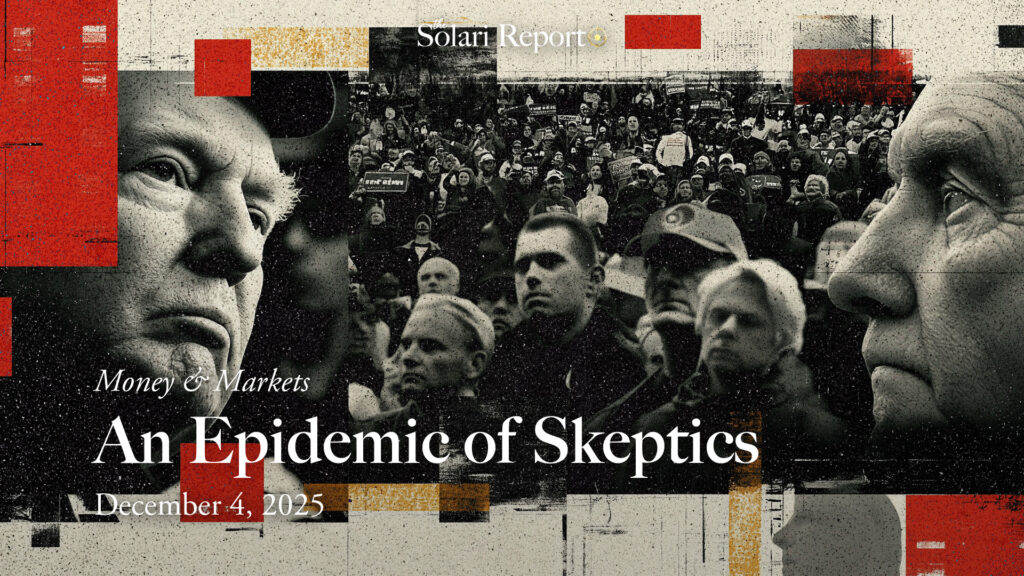

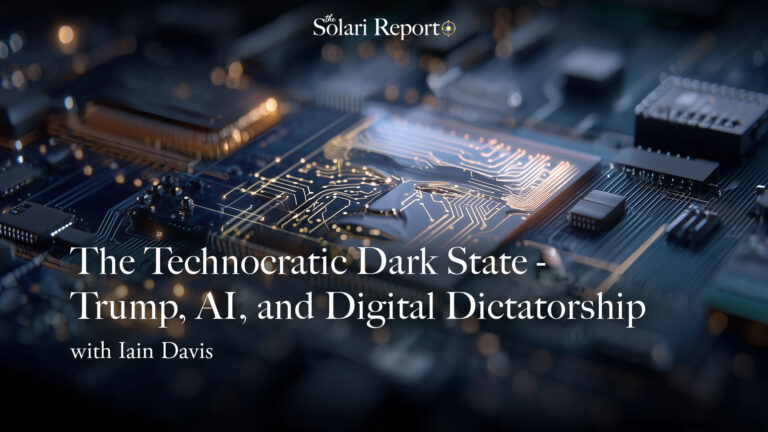

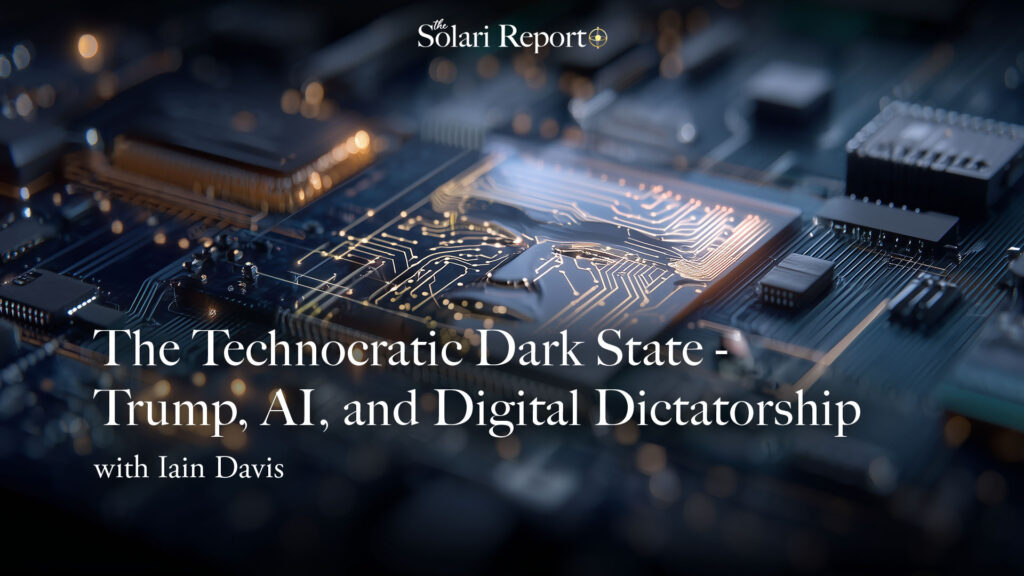














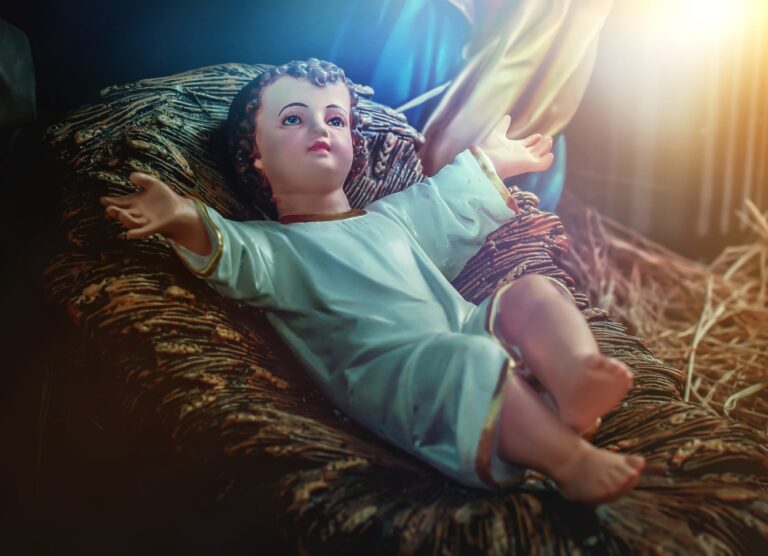
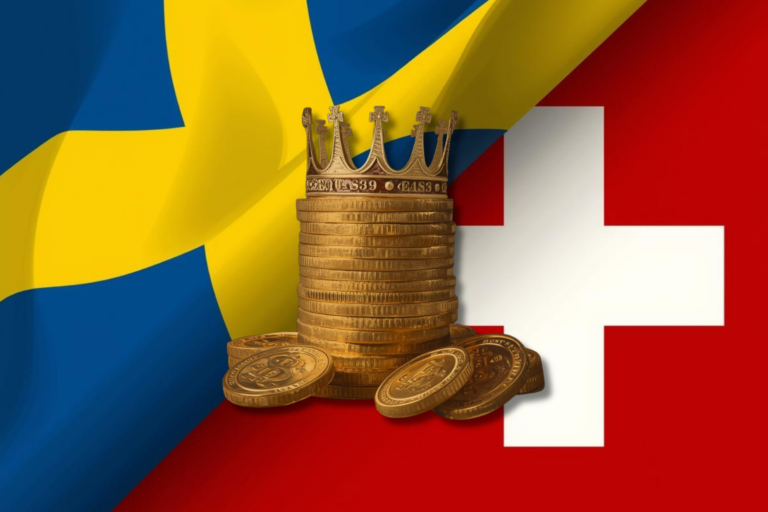
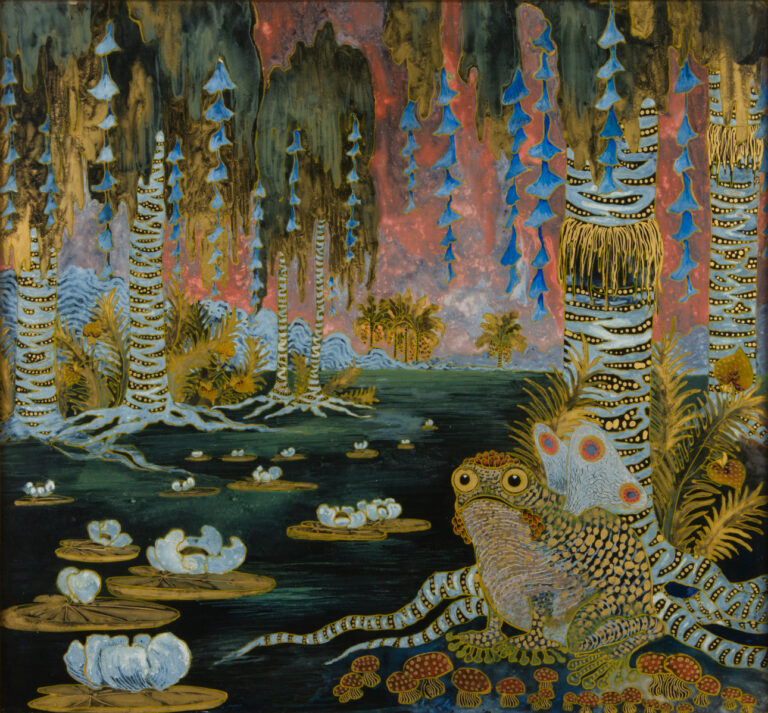
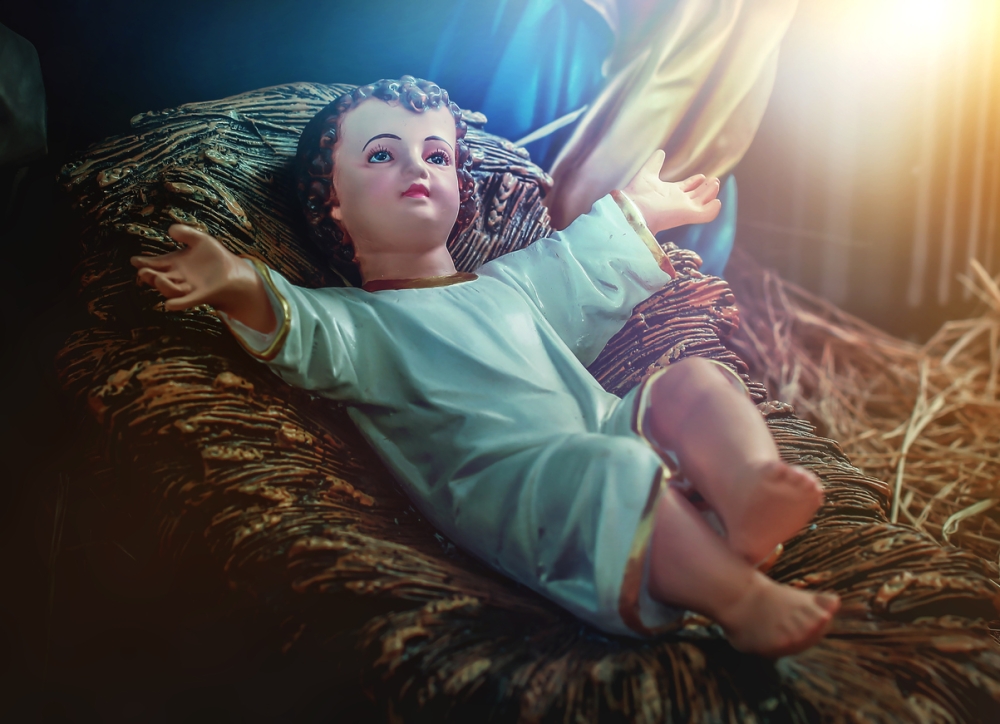
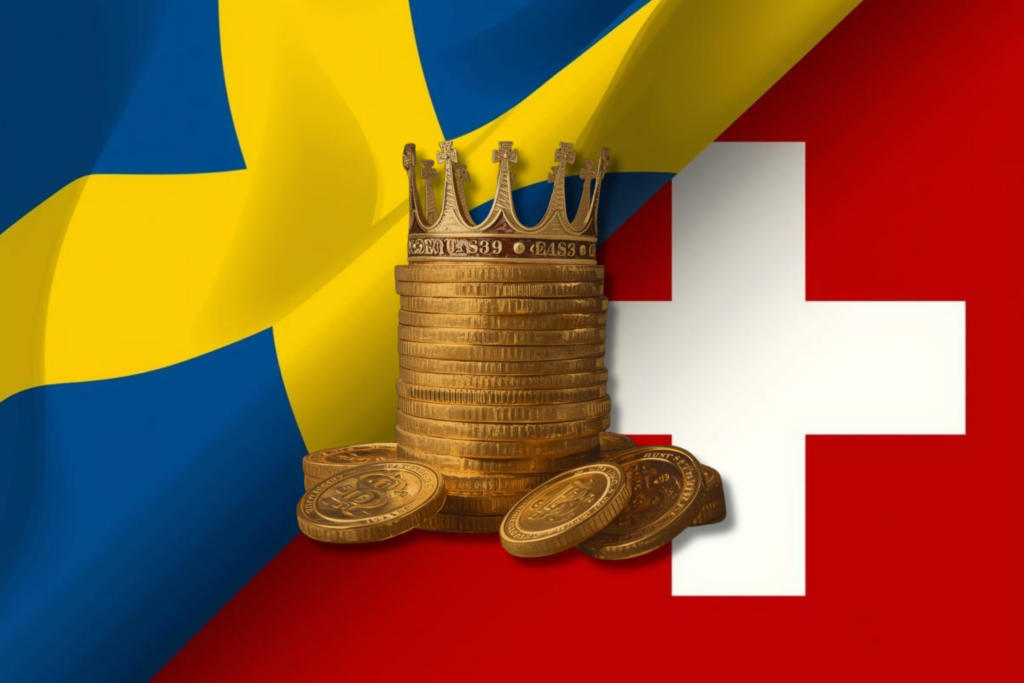
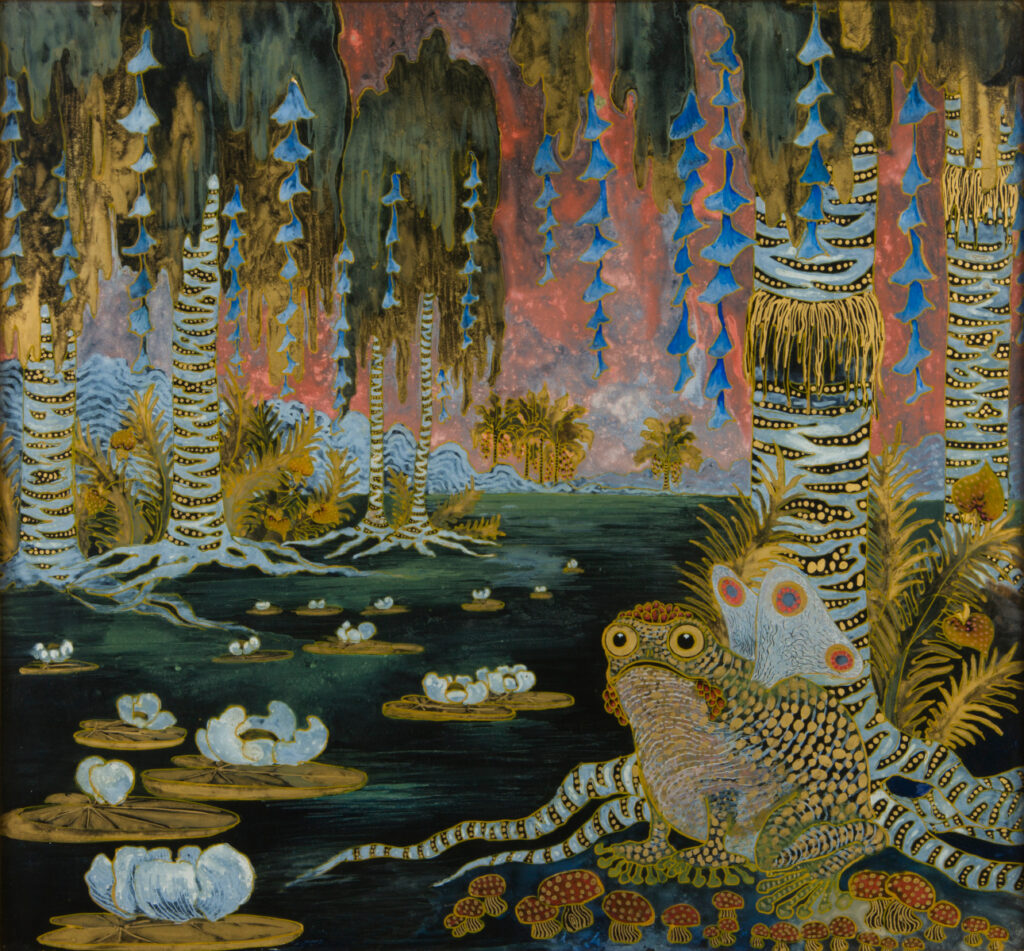






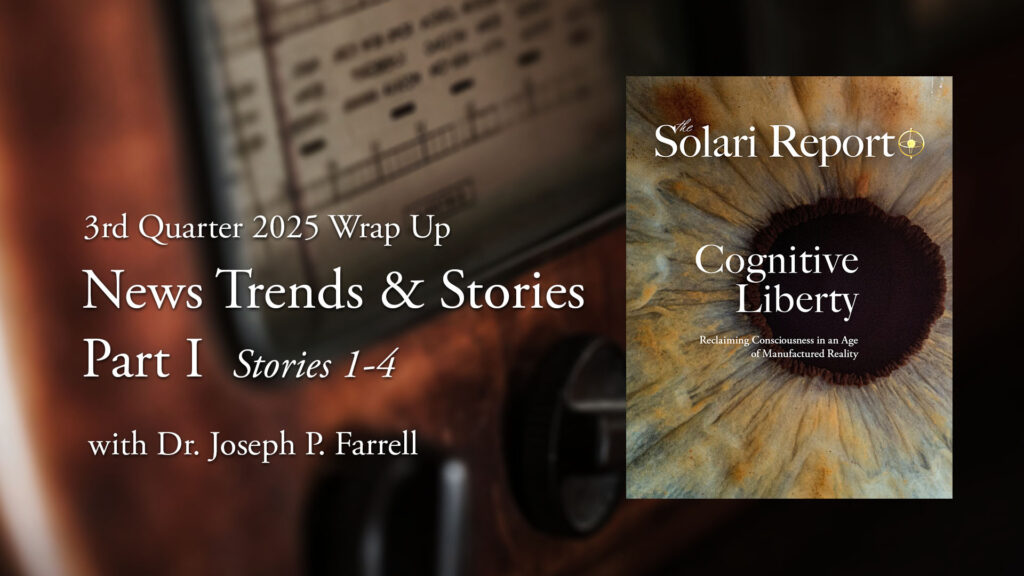
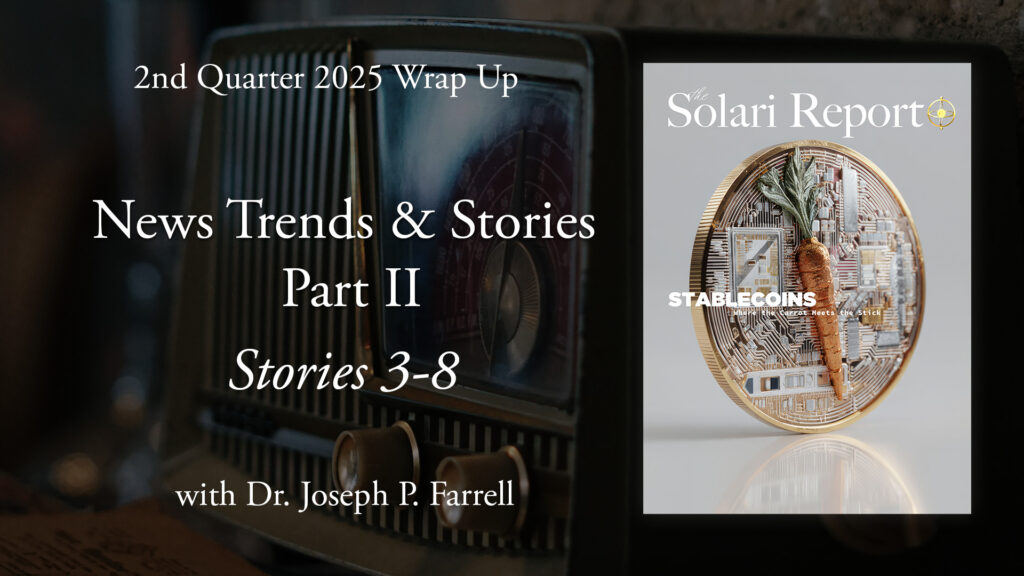


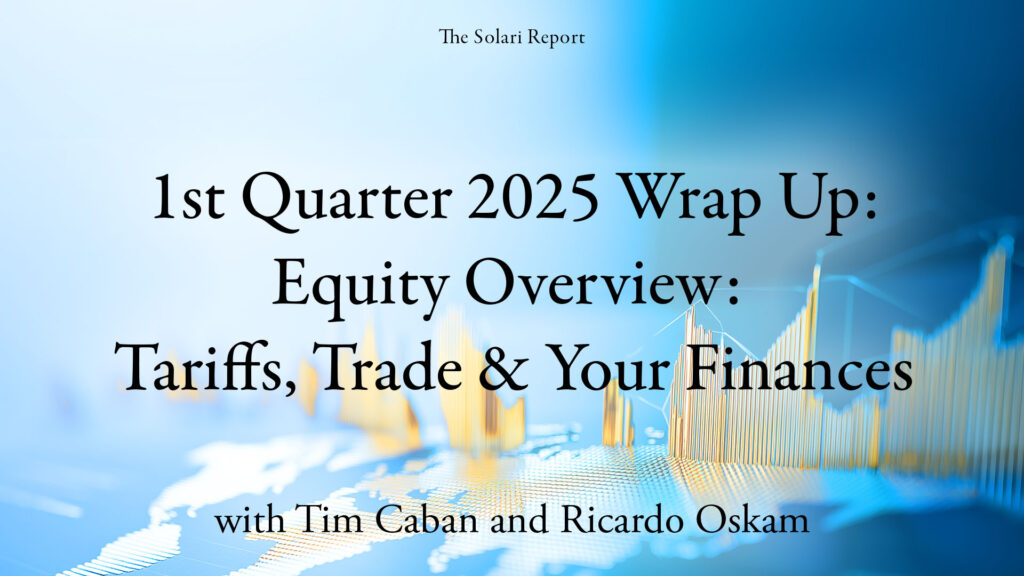








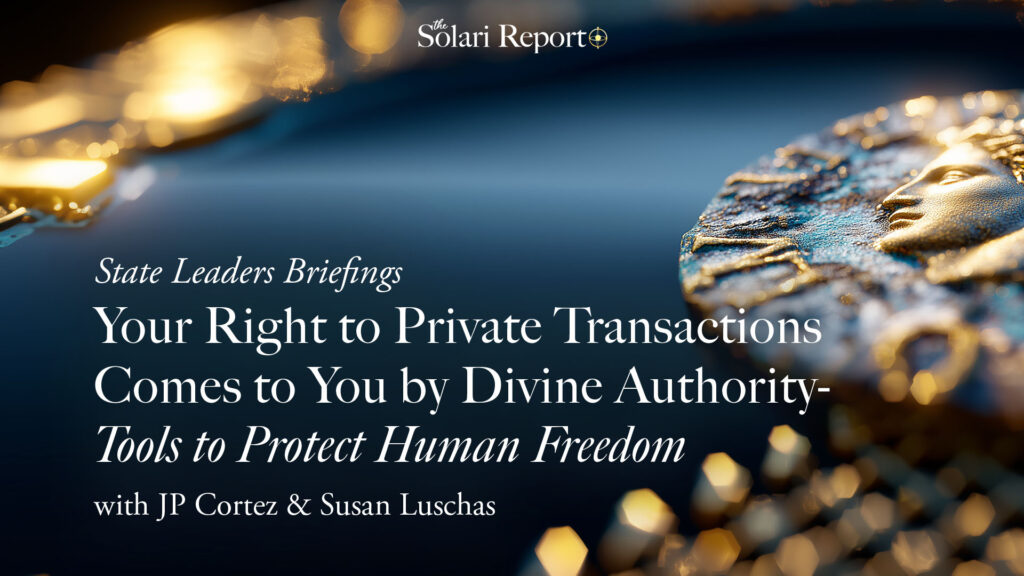


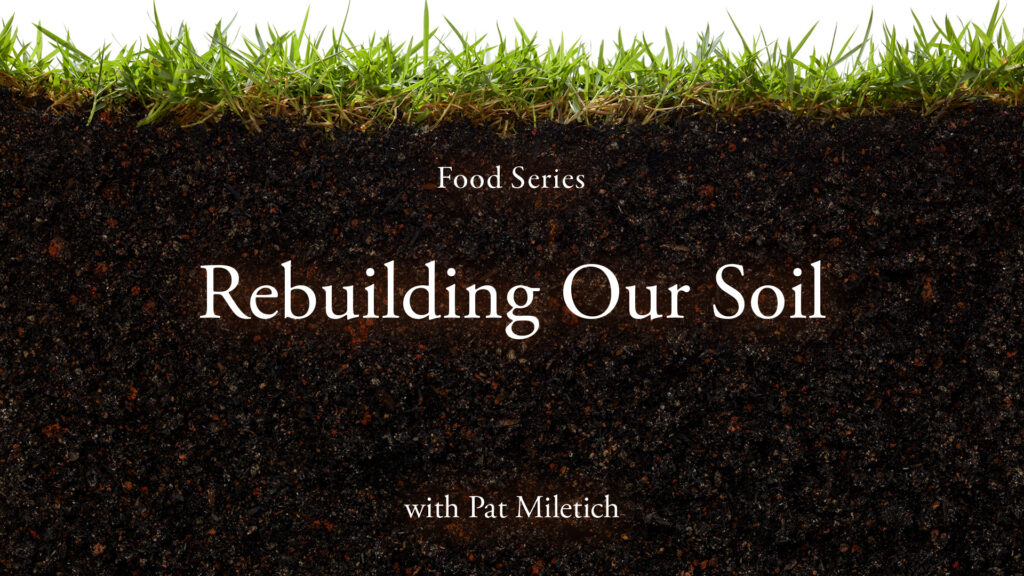






























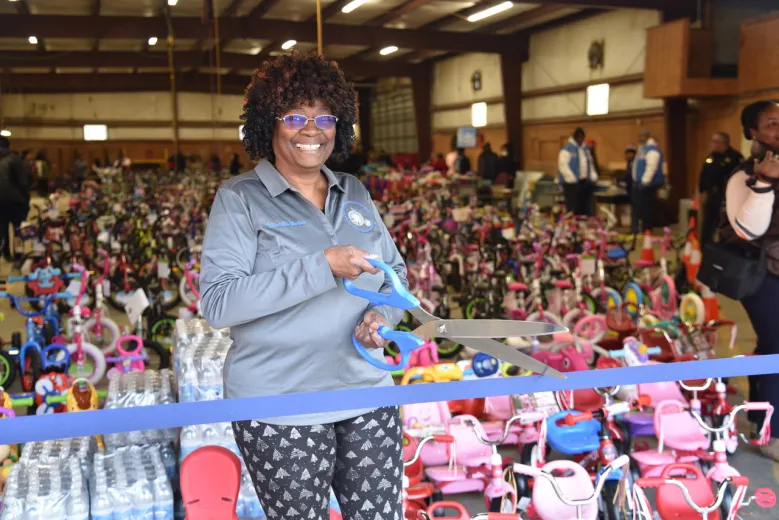
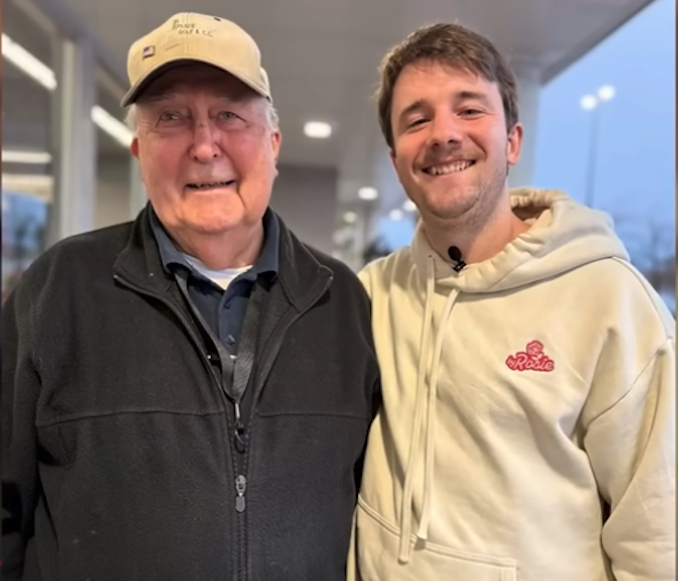
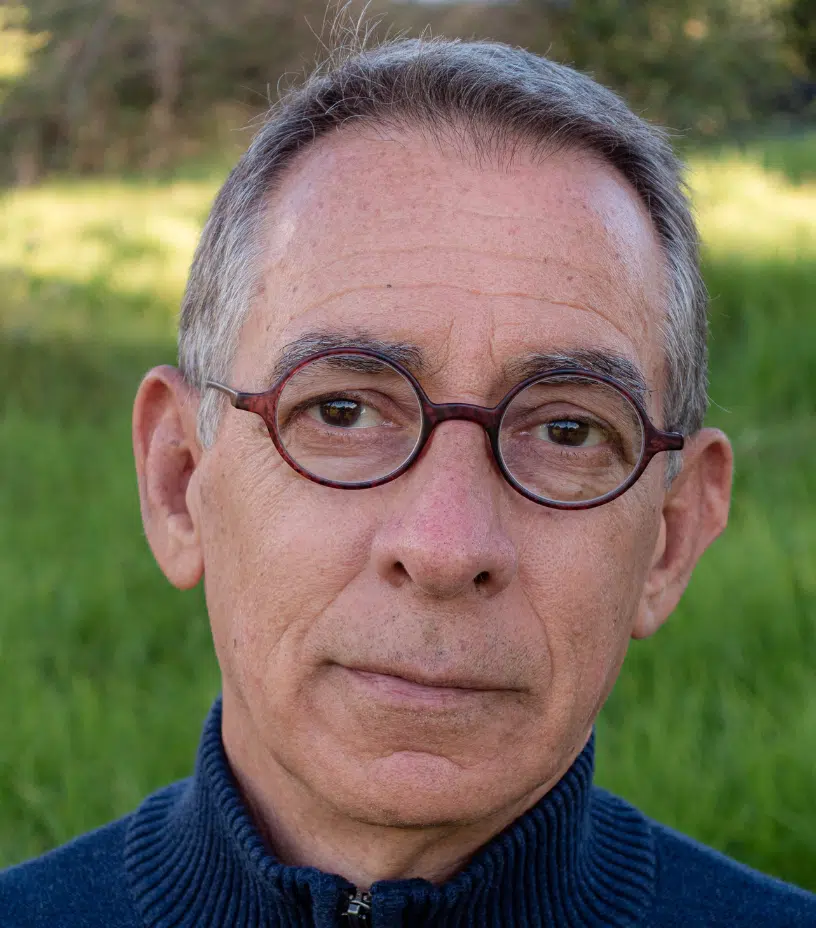
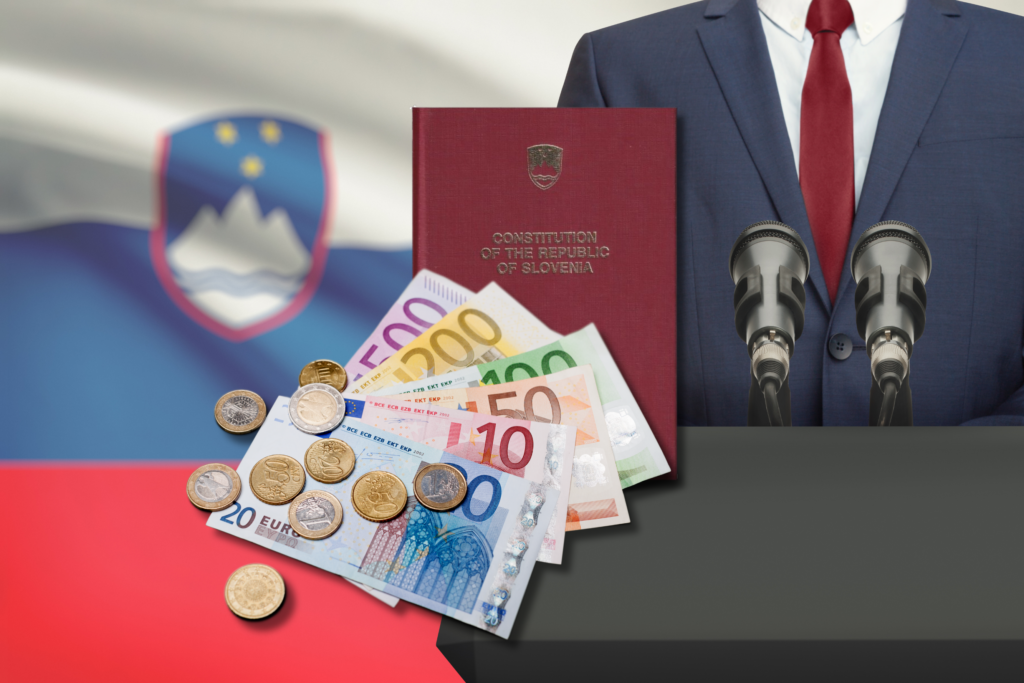
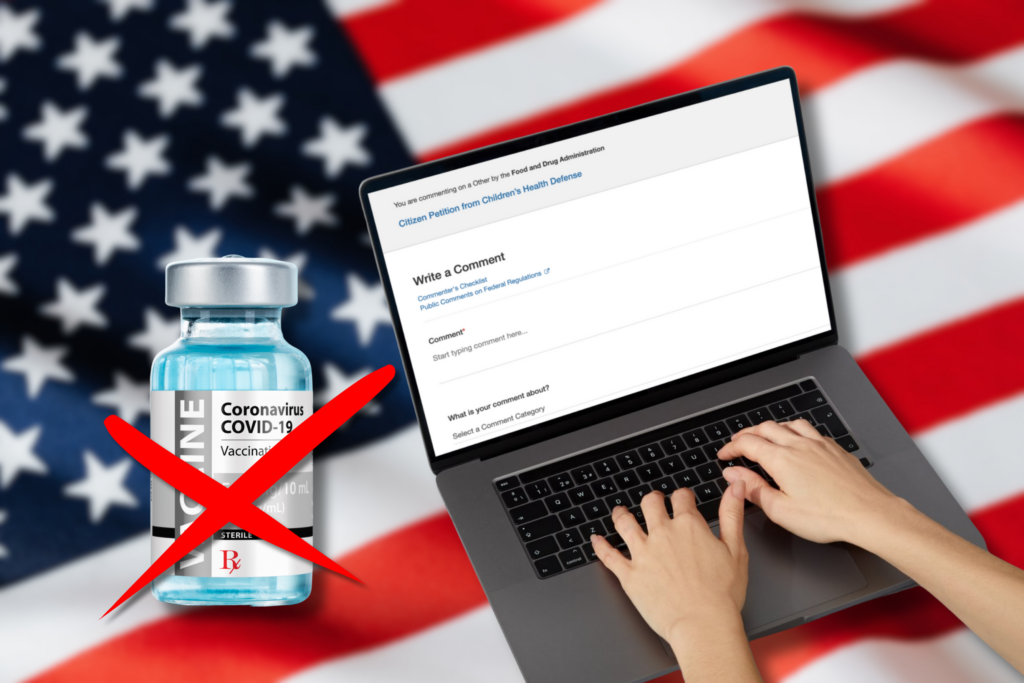
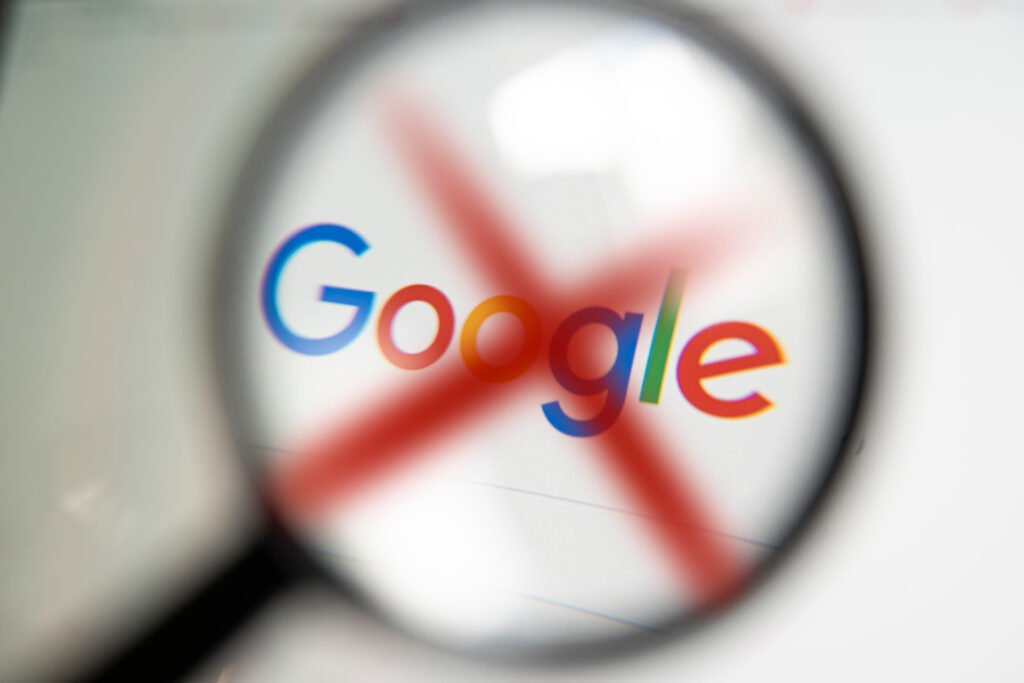





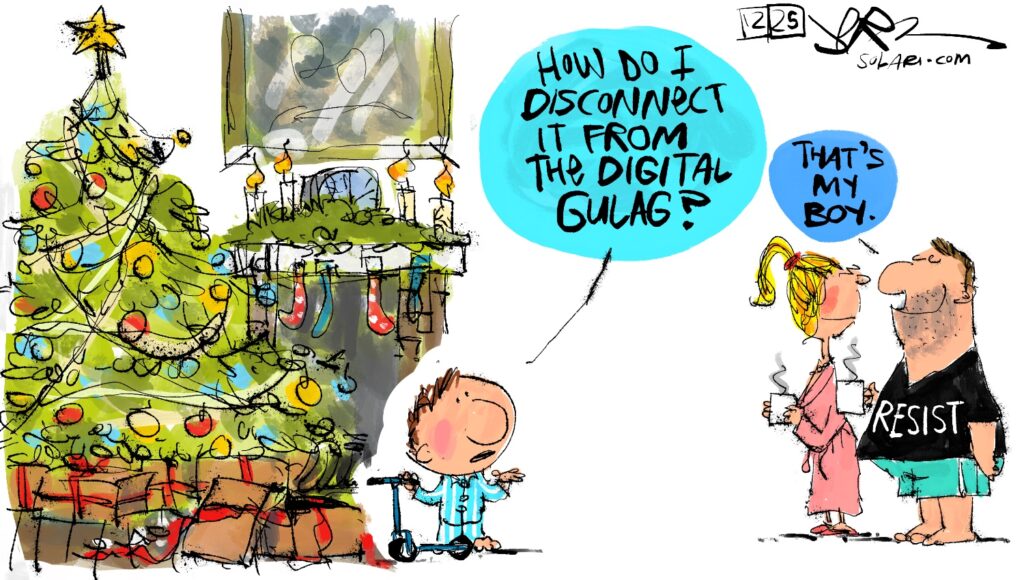
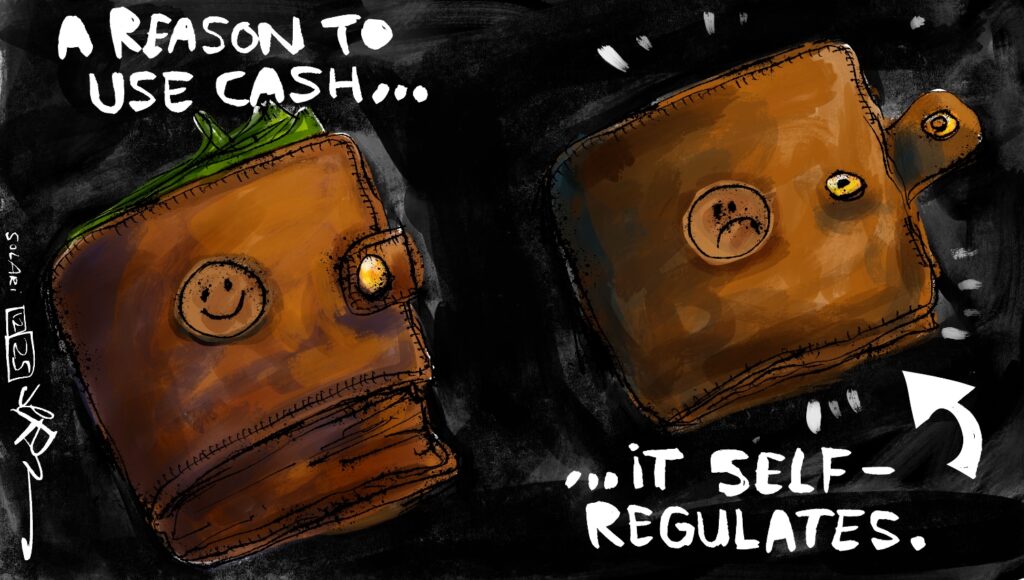
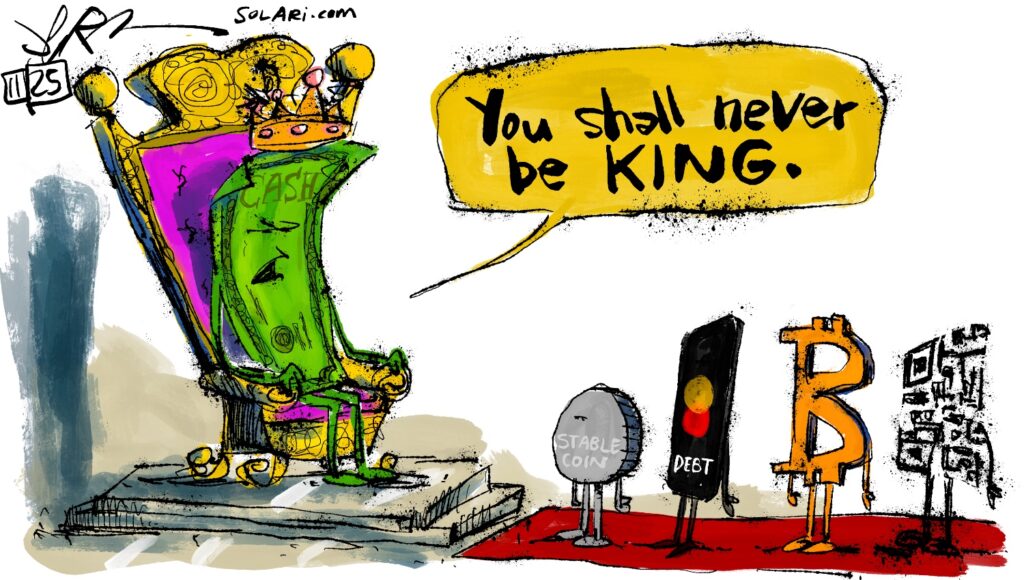



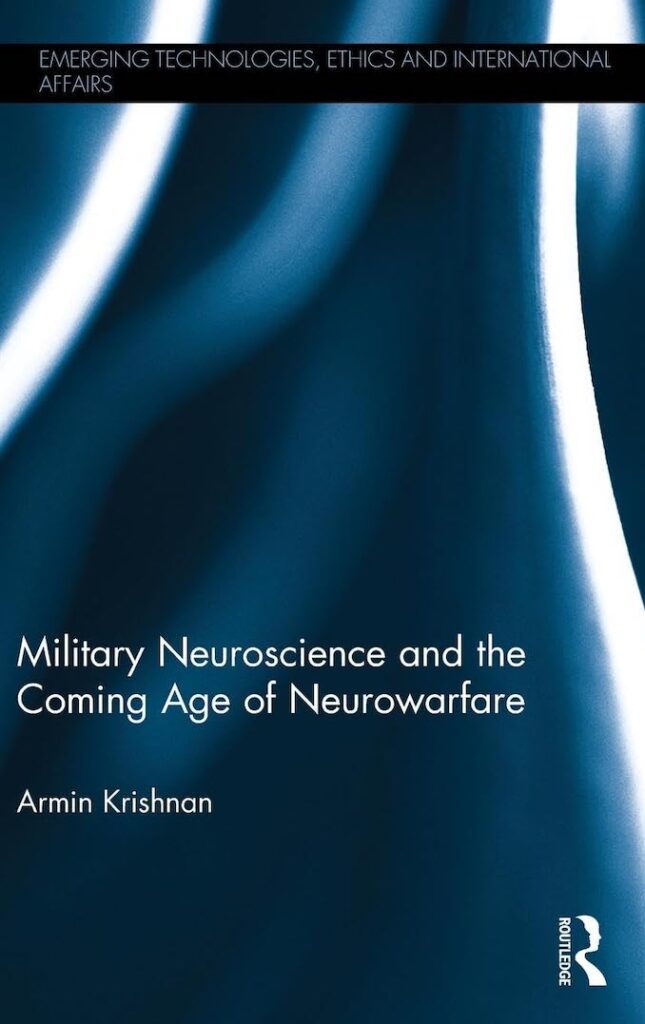




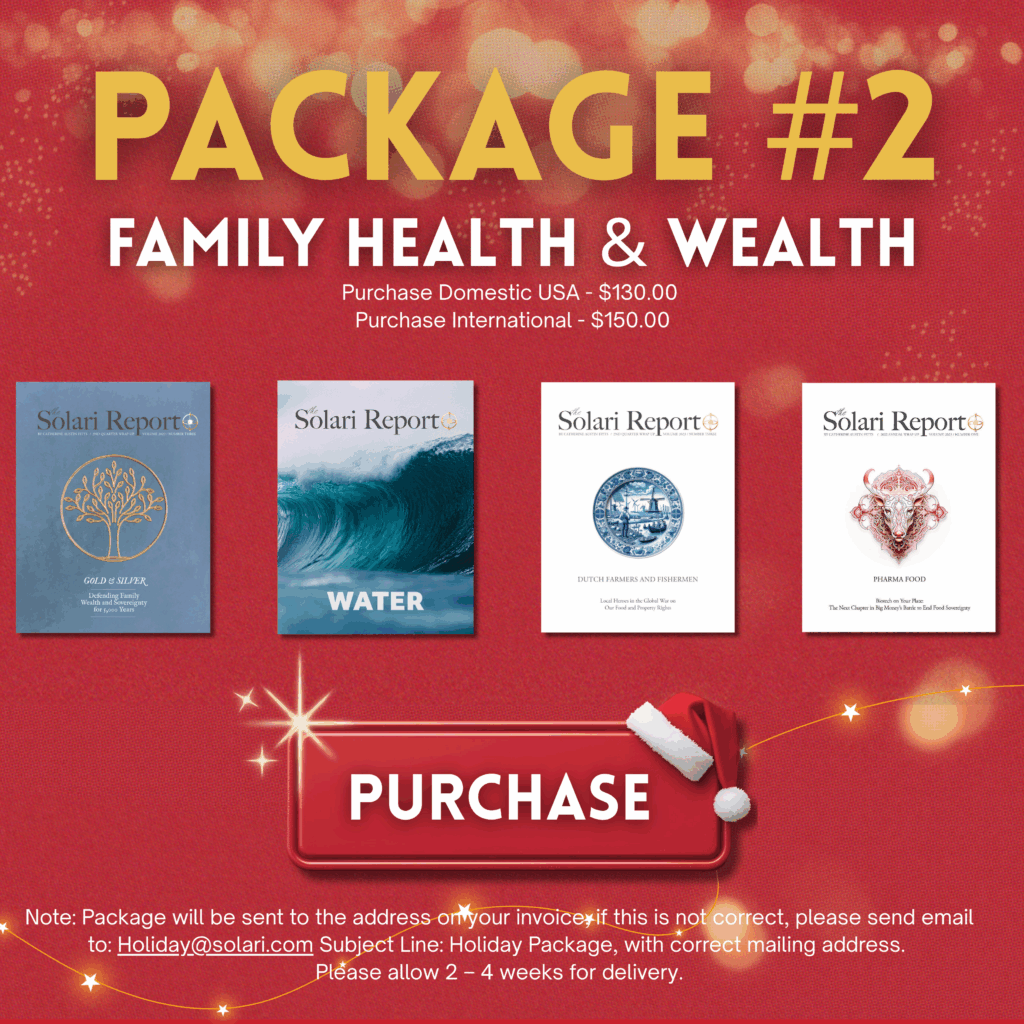
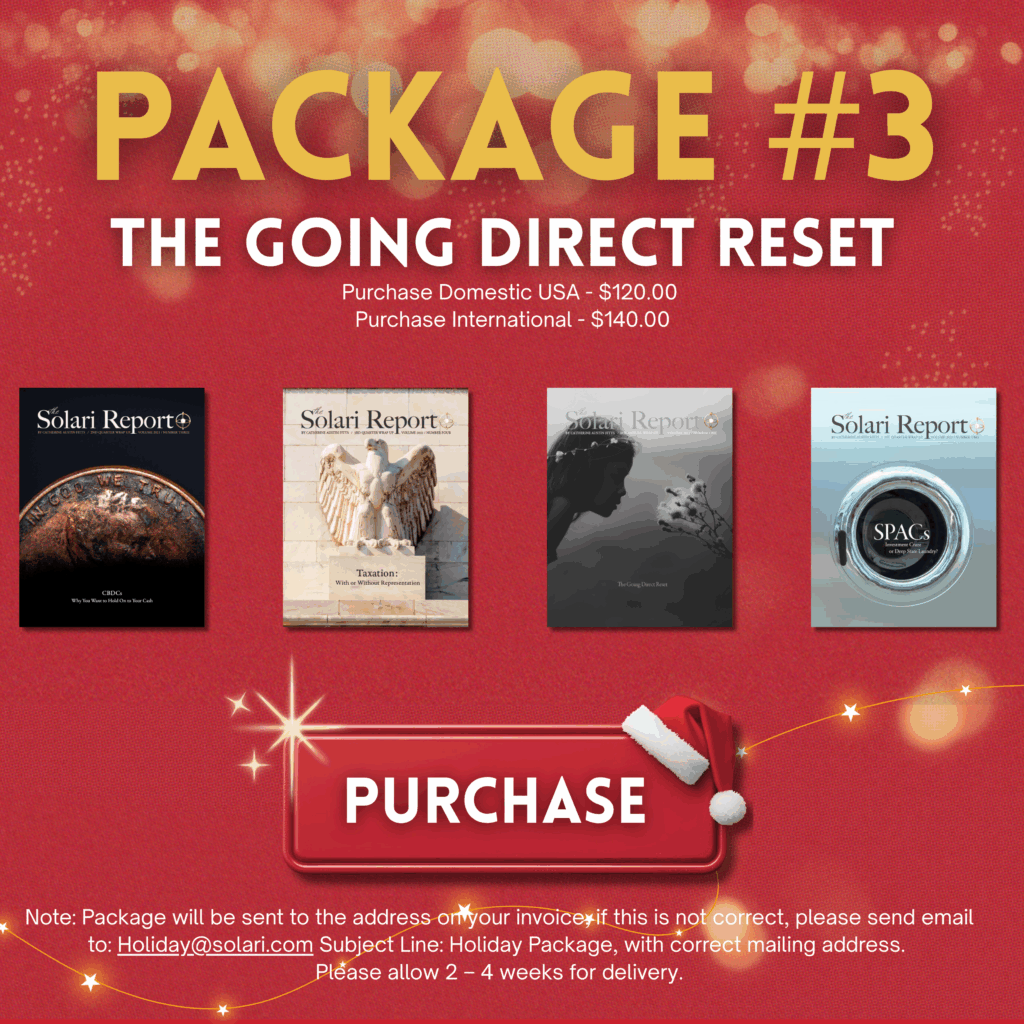
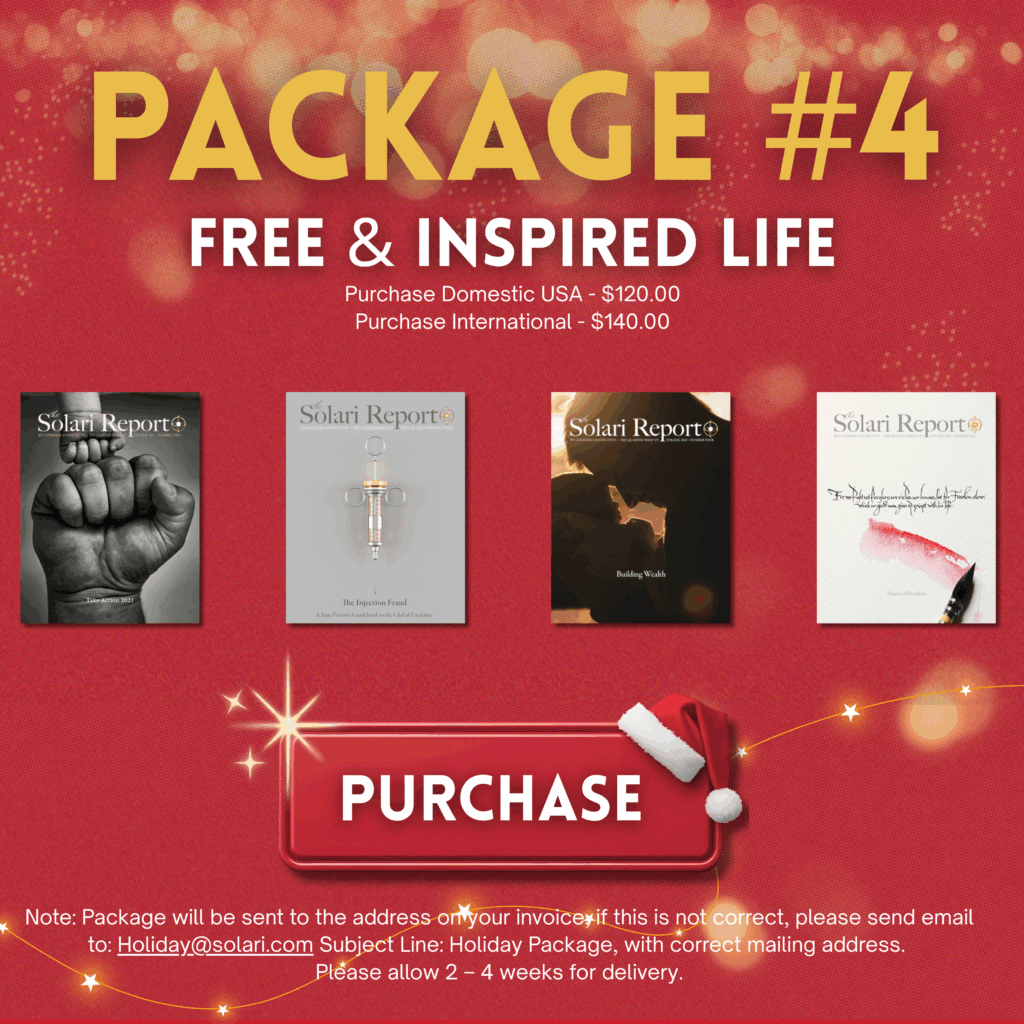
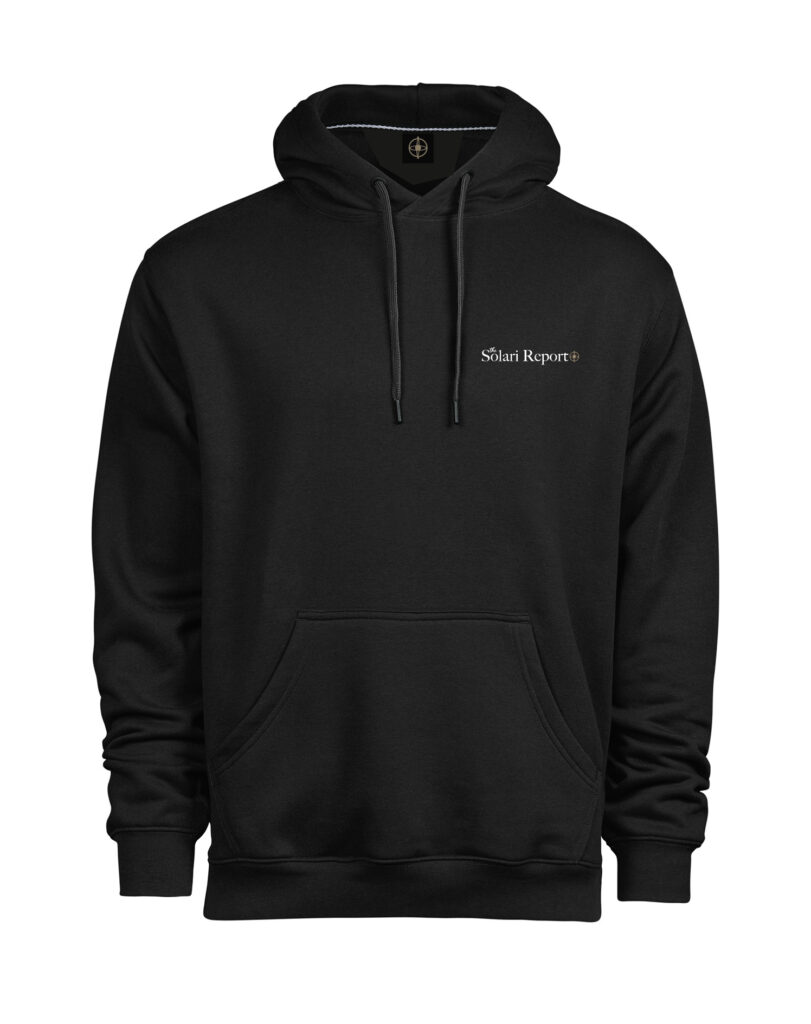
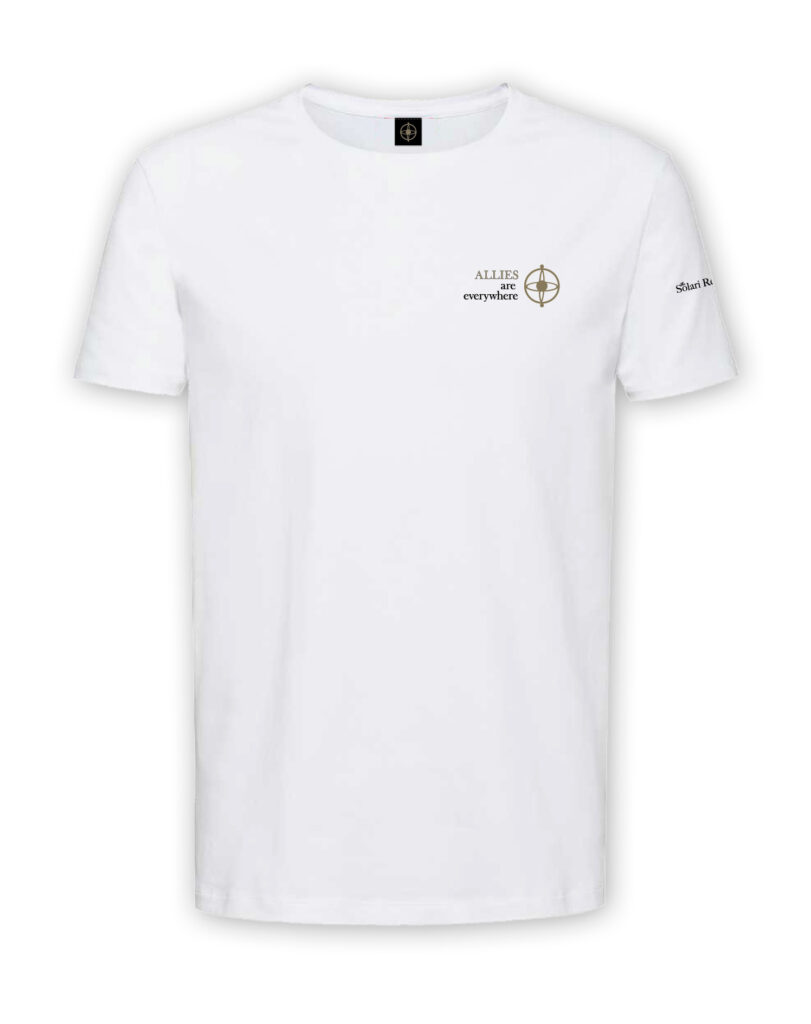
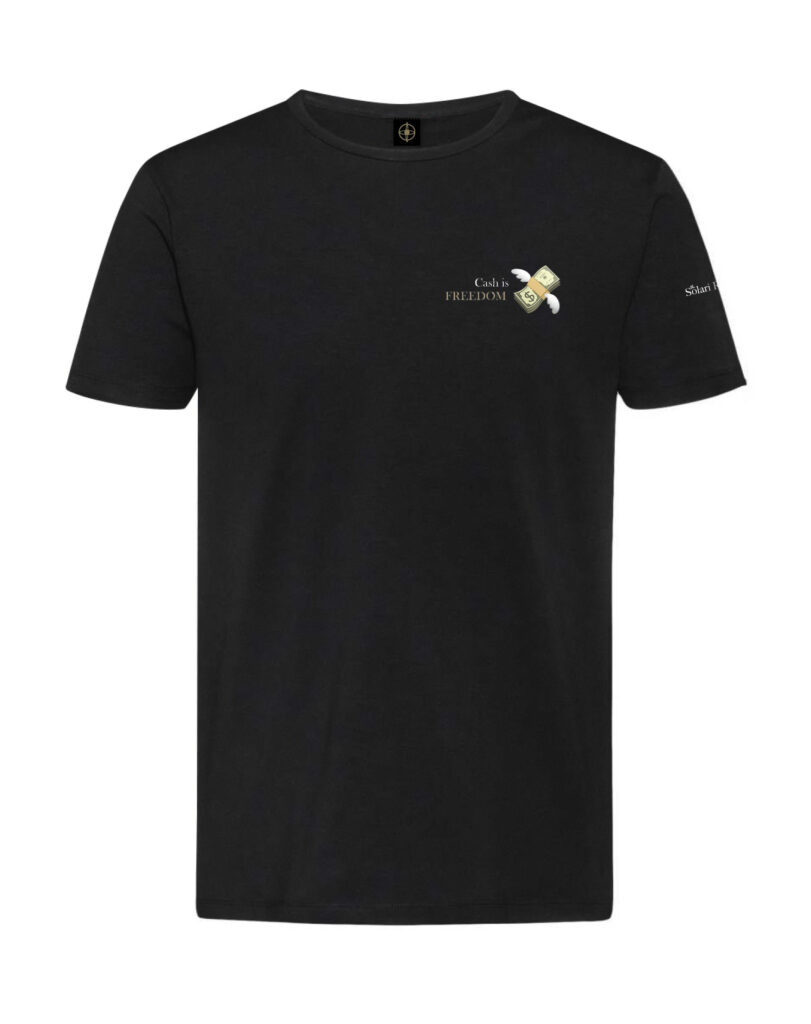





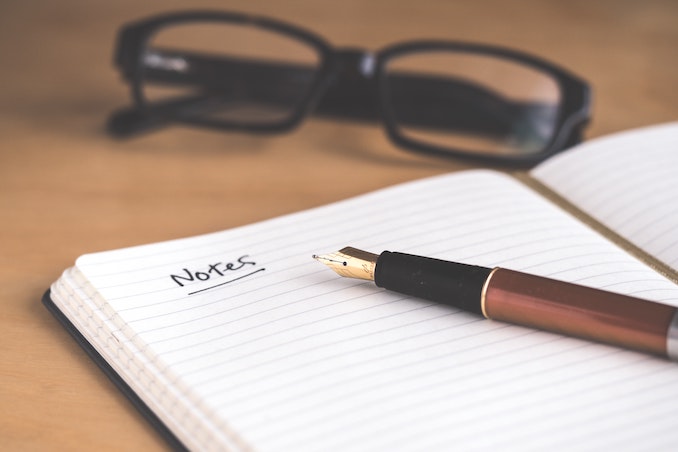

Although these articles are giving good info on the times and trails that men leave in their quest to usurp authority from the creator, we must yet look ahead to the finish as is about to come. As God has foreknown the end from the beginning, and authored in His book of things to come, the things evil men will do to gather all to their service. We can be reashured in these last days that man will continue to seek this path unknowing that he is assisting the Lord of all to bring about the finial demise of man’s rule and the establishing of the eternal kingdom of God on this earth. This is becoming so clear in the timeline that one can only sound the trumpet in hopes that the many will rend their hearts to the Lord that they may find security in Him since the god of mammon is about to be destroyed. Folks, the time is very short, The Lord Jesus is the safe place ahead, seek Him while He can be found, all the riches are about to pass away, but The Lord is eternal. He can be found now if you only cry out to Him.
This is certainly a time of awakening and a period I call the Great Leveling where forced regression takes us back to our core values. Unfortunately, many will not understand it nor see it coming as it is only now being acknowledged when the collapse is in our face. However, I see regression as an opportunity to recreate our future and embrace our peace. I see this as an adjustment to slow down, which is not a bad thing. It is only difficult when the rest of the world is fragmented into various speeds and wrestling with different expectations. I have always struggled with what Loren wrote and believe that religion was important to get the highest percent of control in order for certain agendas to be carried out successfully. The remarkable thing is how this has been passed down for centuries – talk about project management! At the same time, since I firmly agree with Larry, I have to wonder at some of the religious truths and the devil that roams in the details. We are trying to keep things real honest without creating hopelessness in our children. I think that is what it comes down to in survival terms – to not lose hope and keep your kids close with open communication. They know and understand more than we think. Thanks.
This is certainly a time of awakening and a period I call the Great Leveling where forced regression takes us back to our core values. Unfortunately, many will not understand it nor see it coming as it is only now being acknowledged when the collapse is in our face. However, I see regression as an opportunity to recreate our future and embrace our peace. I see this as an adjustment to slow down, which is not a bad thing. It is only difficult when the rest of the world is fragmented into various speeds and wrestling with different expectations. I have always struggled with what Loren wrote and believe that religion was important to get the highest percent of control in order for certain agendas to be carried out successfully. The remarkable thing is how this has been passed down for centuries – talk about project management! At the same time, since I firmly agree with Larry, I have to wonder at some of the religious truths and the devil that roams in the details. We are trying to keep things real honest without creating hopelessness in our children. I think that is what it comes down to in survival terms – to not lose hope and keep your kids close with open communication. They know and understand more than we think. Thanks.
You are absolutely right Loren. Take religion out of it and many of the problems go away. I’ve found the closer one holds their space god the more likely they are to kill, remember the words of George Carlin – “Murder…religion has never really had a big problem with murder. More people have been killed in the name of god than for any other reason. The more devout they are, the more they see murder as being negotiable. It depends on who’s doin the killin’ and who’s gettin’ killed.”
*Yea man, cause communism (athiests) don’t ever kill anybody and Hitler (athiest/psudo-occultist) and Mao (another athiest)…..
yea, religion is all at fault. Can’t be people with free will choosing to do evil cause no rational human being would ever choose to do something the whole world considers eeeeeevvvvvil. What morons.
You are absolutely right Loren. Take religion out of it and many of the problems go away. I’ve found the closer one holds their space god the more likely they are to kill, remember the words of George Carlin – “Murder…religion has never really had a big problem with murder. More people have been killed in the name of god than for any other reason. The more devout they are, the more they see murder as being negotiable. It depends on who’s doin the killin’ and who’s gettin’ killed.”
*Yea man, cause communism (athiests) don’t ever kill anybody and Hitler (athiest/psudo-occultist) and Mao (another athiest)…..
yea, religion is all at fault. Can’t be people with free will choosing to do evil cause no rational human being would ever choose to do something the whole world considers eeeeeevvvvvil. What morons.
Wow I’m young and ignorant at the age of 32 I have just started researching, reading books and blogs on variuos topics about 2 yrs ago that gave me a view of the bigger picture and helped me make since of some of my own views and theories on things that the masses are caught up in.I wish I had spent more time learning from others in various industries,cultures,and a had a better circle of influence than what I surrounded myself with in the past. But as I look at the current situation the world is in and here in the US in particular it amazes me how we have the largest amount of information,knowledge, and communication technology but we can’t rally together and fight off these rediculous schemes like this econmic stimulis plan that will hurt us and only work for the few that will steal from it. Our government should be in a pre-school sand box or jail with the ideas they have to help the people and the economy. It’s obvious that they only have a plan for the few and privledged who caused the problems bail them out give us the bill and all though out of our “elected” officials
36 have been accused of spousal abuse
7 have been arrested for fraud
19 have been accused of writing bad checks
117 have directly or indirectly bankrupted at least 2 businesses
3 have done time for assault
71 , repeat 71
cannot get a credit card due to bad credit
14 have been arrested on drug-related charges
8 have been arrested for shoplifting
21 currently are defendants in lawsuits,
84 have been arrested for drunk driving
and as we all know as of late none of them know how to pay taxes
all of this happened in the last year 2008 this is equals out to 380 offenses spread out over the 535 members of the US Congress
and they are making the decisions on our behalf. They can recieve millions of phone calls and emails against these bailouts and still get these things past. Obama is no different than any other politician claims of change is what every politician runs on and look still business as ussual I remember Bush saying we have to get this pushed through immediatly and Obama says the same to avoid catastrophe what a joke. But how can things change when the same people are in charge and making the rules. between corrupt: world leaders,poiticians,business,industries,and religous leaders. Do we the people have a chance to change things?
So my questions are, what do you think can be done in reality to change the path of the world or your respective nations,or states? Bacause we now more than ever have the ability to connect with others and communicate to fight against what is for the most part tyrany on the part of the collective world leaders and we are now more of a world civilization than ever.How do we rally people and get our opinions heard and followed by our representatives since it obviously hasn’t worked to stem the bailouts or anything else for that matter? Is it impossible to change since these few and and all powerful have kept the masses broken and in control too long and if not what do we do?
There have been some comments on here that raised my questions and I believe are even great ideas like teaching and learning about finances an dmultiple skills and trades and helping one another in your local community,but its hard when even your parents won’t share with you what they are doing with thier money and thier experiences. Our society is secretive and taught not to tell what you have and how you got it but to use your knowledge to use others and get more? What do we do?
thanks for a great forum I will try and keep things short next time
Wow I’m young and ignorant at the age of 32 I have just started researching, reading books and blogs on variuos topics about 2 yrs ago that gave me a view of the bigger picture and helped me make since of some of my own views and theories on things that the masses are caught up in.I wish I had spent more time learning from others in various industries,cultures,and a had a better circle of influence than what I surrounded myself with in the past. But as I look at the current situation the world is in and here in the US in particular it amazes me how we have the largest amount of information,knowledge, and communication technology but we can’t rally together and fight off these rediculous schemes like this econmic stimulis plan that will hurt us and only work for the few that will steal from it. Our government should be in a pre-school sand box or jail with the ideas they have to help the people and the economy. It’s obvious that they only have a plan for the few and privledged who caused the problems bail them out give us the bill and all though out of our “elected” officials
36 have been accused of spousal abuse
7 have been arrested for fraud
19 have been accused of writing bad checks
117 have directly or indirectly bankrupted at least 2 businesses
3 have done time for assault
71 , repeat 71
cannot get a credit card due to bad credit
14 have been arrested on drug-related charges
8 have been arrested for shoplifting
21 currently are defendants in lawsuits,
84 have been arrested for drunk driving
and as we all know as of late none of them know how to pay taxes
all of this happened in the last year 2008 this is equals out to 380 offenses spread out over the 535 members of the US Congress
and they are making the decisions on our behalf. They can recieve millions of phone calls and emails against these bailouts and still get these things past. Obama is no different than any other politician claims of change is what every politician runs on and look still business as ussual I remember Bush saying we have to get this pushed through immediatly and Obama says the same to avoid catastrophe what a joke. But how can things change when the same people are in charge and making the rules. between corrupt: world leaders,poiticians,business,industries,and religous leaders. Do we the people have a chance to change things?
So my questions are, what do you think can be done in reality to change the path of the world or your respective nations,or states? Bacause we now more than ever have the ability to connect with others and communicate to fight against what is for the most part tyrany on the part of the collective world leaders and we are now more of a world civilization than ever.How do we rally people and get our opinions heard and followed by our representatives since it obviously hasn’t worked to stem the bailouts or anything else for that matter? Is it impossible to change since these few and and all powerful have kept the masses broken and in control too long and if not what do we do?
There have been some comments on here that raised my questions and I believe are even great ideas like teaching and learning about finances an dmultiple skills and trades and helping one another in your local community,but its hard when even your parents won’t share with you what they are doing with thier money and thier experiences. Our society is secretive and taught not to tell what you have and how you got it but to use your knowledge to use others and get more? What do we do?
thanks for a great forum I will try and keep things short next time